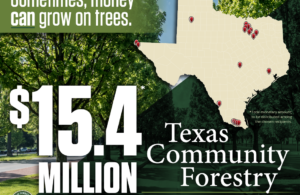- La Feria Native Soon To Retire From The Military This Summer
- Senior Eneece Avila Takes Pride in her State Title
- Dr. Noemi Infante, Harlingen Medical Center Open New Women’s Clinic
- Santa Rosa Cameron County Park Partially Reopens
- Santa Rosa Takes to Regionals Meet in Kingsville, Tx
- Long-Standing Nexstar Tower in La Feria Decommissioned
- Lionettes Powerlifting Meet
- Local Business Holds Event to Benefit RGV Shriners Club
- Knights of Columbus Holds it’s 30th Annual Golf Tournament
- KGBT Tower Dismantled
Report: Feds’ Biofuel Policy Produced Unintended Environmental Consequences
- Updated: March 22, 2019

As Texas farmers have increased corn and soy production to reach goals set by the Renewable Fuel Standard, water supplies have been strained. Photo: U Delaware/Flickr
by Eric Galatas
AUSTIN, Texas – A new report says the federal Renewable Fuel Standard, created to spur ethanol production and cut air pollution, is responsible for a number of negative environmental impacts, including reduced water supplies in Texas and other drought-prone areas.
Producing a single gallon of ethanol can require up to two thousand gallons of water. Nathan Hendricks, associate professor of agricultural economics with Kansas State University, says federal policies promoting biofuel production led to higher prices for corn, soybeans and other crops.
“Changes in market prices change the incentive for farmers,” says Hendricks. “There’s going to be more planting of corn on existing cropland, and there’s going to be an incentive to bring non-crop land into crop production.”
From 2009 to 2016, the RFS led to the transformation of 1.6 million acres of forests, grasslands and wetlands to crop production. Supporters of the fuel standard aimed to reduce air pollution through the increased use of plant-based fuels, which burn cleaner than conventional gasoline, and to reduce the nation’s dependency on foreign oil.
The Renewable Fuel Standard also led to widespread loss of critical habitat for wildlife. David DeGennaro, agriculture policy specialist with the National Wildlife Federation, says the new research eliminates any remaining doubt that U.S. biofuels policy is making the environment worse, not better.
He says the RFS has resulted in a total loss of nearly three million acres – roughly the size of Delaware – that would otherwise be wildlife habitat or non-farm lands to corn and soybean production.
“And putting that into industrial crop production, you release a huge amount of carbon from the soil that has been stored there for decades, you destroy wildlife habitat, and the process of farming sends a lot of fertilizers and soil and other pollution downstream,” says DeGennaro.
Public officials are preparing to rewrite national biofuel policy because of a mandated “re-set” of the law. DeGennaro says he hopes the new research will help move the nation closer to solutions to promote clean fuels in a way that works for farmers, communities and wildlife.







One Comment